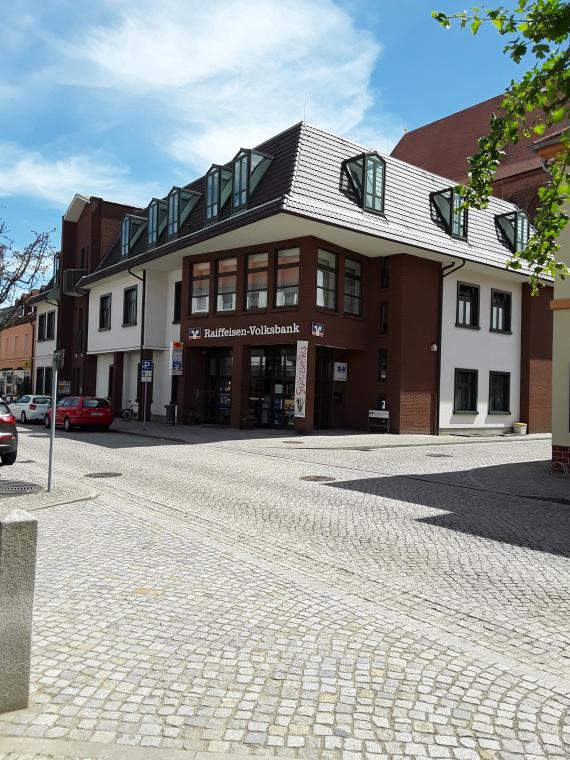Breite Straße 37/38
15848 Beeskow
Germany
The most famous department store in Beeskow was the clothing store F. Beermann. It was opened on April 26, 1860 by Felix Beermann. He handed it over to his son Hermann Beermann. He ran it with his wife Rosa, who took over the family business after his death. The Central Council of Jewish Women*Jews suggested to Rosa Beermann that she should not run such a business without a man. So on September 14, 1935, she married Ludwig Warschauer, who was a manufactured goods merchant, and ran the business with him.
Ludwig and Rosa Warschauer experienced the first National Socialist intervention in their lives in the wake of the Reich Pogrom Night. On the morning of November 10, 1938, the window panes of the clothing store were broken under the gaze of part of the Beeskow population. As a further consequence, the couple and one of their employees were taken into custody. Rosa Warschauer was released the same evening due to her state of health. The release of Ludwig Warschauer dragged on until December 6, after he had been detained in first Storkow, Potsdam and then Sachsenhausen. The Warschauers had to finance the clean-up work around the damaged building. The cost amounted to 3000 RM.
After the Pogrom Night, there was no reopening by the Warschauers, as the state initiated a sale of the building and goods. The price for the building was set at RM32,250 and the value of the goods was estimated by an appraiser to be RM40,000. The Warsawers received these amounts in their accounts, but these were blocked for them. They were only given access to 600 RM per month. In addition to the 3000 RM, they were charged another approx. 2000 RM by the new owner for the procurement of the window panes.
During the Second World War, the former clothing store F. Beermann was destroyed. Now there is a branch of Raiffeisen-Volksbanken. At this place were laid in memory on March 20, 2014 and again on April 17, 2014, after the stones were presumably removed, Stolpersteine.

Add new comment